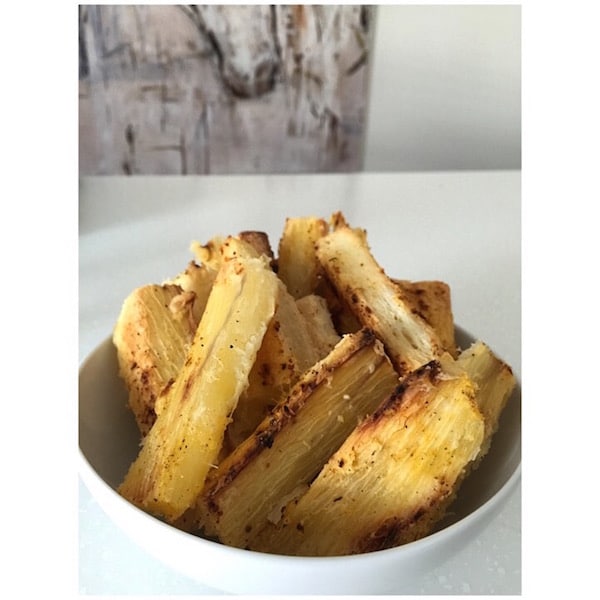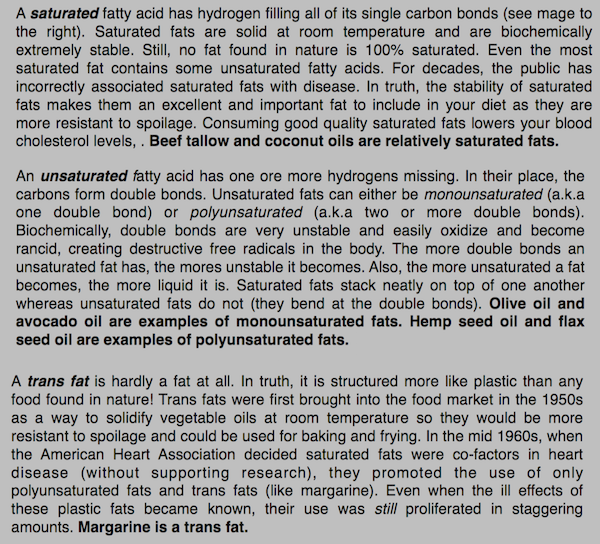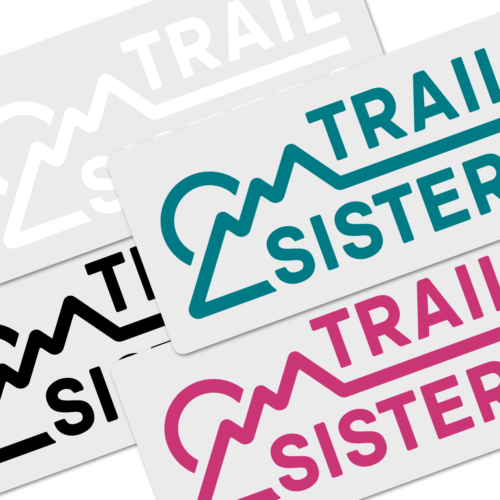Main Menu
Fully Saturated: The Truth Behind Fat

Ashley Hunter Arnold is a writer and filmmaker currently living and running in Asheville, NC. Her favorite foods are kale and cake with lots of icing. You can connect with her on Instagram @ashleyharnold.
Share This Article!
When I was a sophomore in high school delving into distance running, I thought to be a runner I had to be lean. And to be lean, I had to refrain from eating fat because fat created fat. And that was that. A dangerous notion indeed, because fat is central to hormone synthesis, energy production, cushioning for our organs, warmth, supporting cell growth, metabolizing fatsoluble vitamins to name several of fat’s key roles in the body. Without it, we cease to work! Still, there are good fats and bad fats and OK fats … and a whole lot of confusion around all of them.
I was born in 1986. And so I grew up during the era of proliferating trans fats and fast food restaurant chains amidst an ever cheapening food landscape. Despite several studies throughout the 1990s (and earlier in fact) that clearly indicated a strong correlation between increased risk of heart disease (among many other problems) and trans fat consumption, more and more prepackaged foods were being made with these socalled “plastic fats.”
It made sense that I was so ill informed as a teenager. Everyone around me eating high fat diets were getting fat. But it was the kind of fat that they were eating, not the amount. People that consume a lot of trans fats (the kind in prepackaged foods and fast foods) tend to have excess adipose (fat) tissue. And so, as could have been assumed, I continued to steer away from fats in exchange for low fat foods that had, unfortunately, large amounts of something for another post … sugar (and a whole host of other chemicals and unreadable fillers). I had no idea at the time that there was a better option. I had no idea at the time that consuming fats would actually help me sustain a good weight and proper hormone balance that would benefit my training and active lifestyle.

Fast food chains rose to the top of the food industry as healthful, natural saturated fats had already fallen quickly and quietly out of vogue after the 1956 Seven Countries Study, a study initiated by famous scientist Ancel Keys, that wrongly blamed saturated animal fats for an increased risk of coronary heart disease. This was a significant snippet in time in our country’s nutritional history because it initiated a widespread shift to not only reduce saturated fat intake, but also to reduce fat intake overall (while the study did present a positive correlation between monounsaturated fats and heart health, the overarching advice was to cut overall fat intake). And there we went. Off into the culture of low fat, a destination many distance runners know well. Butter and lard were condemned and a whole new reign of risky vegetable oils (like canola) were introduced to the market and used, well, everywhere. And we’re just now rounding the corner and starting to spread the word on a more national level that this way of eating isn’t working.
It is safe to say that mostly saturated fats like organic coconut oil and grassfed, organic animal fats are healthful. Short and medium chain fats found in coconut oil are antimicrobial, increase HDL (the good) cholesterol and may potentially support weight loss, especially in the waists of women. What’s more, there seems to be a positive relationship between these short and mediumchain fatty acids and heart health (as runners, we want to maintain a healthy cardiovascular system).
What about inflammation? Yep, coconut oil helps to reduce that, too, along with increasing our immune response.

But what about polyunsaturated fats? Read the sidebar above and you’ll see that the more unsaturated a fat is, the more unstable it becomes. This being said, things can get confusing here because there are a handful of polyunsaturated fats that havebeen proved very beneficial for health (fish oil and walnuts, for example). As a rule of thumb, though not without exception, the more unstable it is, the more likely it is to negatively affect your health due to oxidative free radical damage. What’s more, some studies have actually linked a greater intake of polyunsaturated fats with an increased level of tissue cholesterol. (We get enough free radical damage through intense exercise, that we don’t need to be adding to it with our diet! Our diet should support a reduction in free radical damage.)
Most vegetable oils are high in Omega 6 fatty acids. While Omega 6 fatty acids are essential, they are needed in a balanced ratio with Omega 3 fatty acids, and the Standard American Diet is far too tipped toward the Omega 6 side. When you’re eating too many Omega 6 oils you are compromising not only your immune function but also trending toward higher levels of inflammation and potentially chronic disease.
While fish is definitely a healthy source of Omega3 fatty acids (despite being a polyunsaturated fat), fish oil capsules have the potential to wreak havoc on your health if stored or packaged improperly. In this case, it’s best to consume the polyunsaturated fat in its natural state: in the fish (Cold water fish like salmon and cod are excellent sources of Omega 3 fats) or in a fish oil capsule you know has not been oxidized and also has the correct ratio of DHA/EPA.
Surprisingly (or not surprisingly at all, depending on who you talk to), Whole Foods prepares most of their hot bar food with the highly reactive canola oil, one of the high Omega6 polyunsaturated vegetable oils (this is merely an observation from my experiences eating there). So, read the ingredient lists before you scoop and try to avoid eating canola as much as possible.
The bottom line? If you want to improve your health, feel better while you train and race, live longer and feel more satiated throughout the day, eat better sources of fat.
…. May you run long and prosper!
ASHLEY’S HELPFUL TIPS FOR IMPROVING YOUR DIET’S FAT PROFILE:
- Eat more saturated fat. Cook with coconut oil and use grass fed organic butter. Even try out some good old fashioned lard or tallow (like this product from EPIC Bar). That being said, it’s a good idea to opt for the grass fed beef tallow over the duck and pork most of the time since the latter two are higher in omega6 fats.
- Be conscious of storing fat. You can still eat unsaturated oils (on occasion), but be conscious of how and where you store them and for how long.
- Cook at lower temperatures. And don’t cook your food at too high of temperatures to prevent oxidation. Pay close attention to the temperature at which a fat oxidizes. (Example, don’t cook anything in olive oil on high heat.)
- Where does the fat come from? A good rule of thumb when choosing fats: As yourself if you could easily make the fat yourself without the assistance of solvents and chemicals (often needed for polyunsaturated vegetable oils). If the answer is no, it’s likely best to avoid it.
About the Author

Ashley Hunter Arnold is a writer and filmmaker currently living and running in Asheville, NC. Her favorite foods are kale and cake with lots of icing. You can connect with her on Instagram @ashleyharnold.
Share This Article!



















